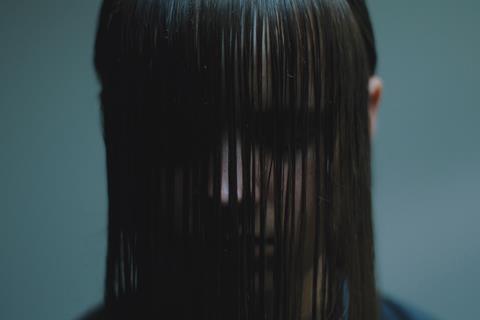An intimate coming-of-age documentary about an eleven-year-old reclaiming her body after a sleepwalking injury

Dir: Andreas Koefoed. Denmark. 2022. 72 mins
At eleven years of age, for the first and only time in her life, Estrid walked in her sleep. She dreamt, she recalls, that her younger sister stole her new hat and threw it out of her fifth-floor window. And then, both in her dream and reality, Estrid jumped out to follow it. She survived the fall, suffering numerous fractures. Through determination and force of will, she recovered the use of her shattered legs. But the trauma was mental as well as physical, and this horrible freak incident impacted on Estrid’s whole family. This intimate coming of age portrait follows Estrid, over the course of five years, as she reclaims her body from the injuries and her identity from that of “accident victim”.
Koefoed’s approach is a blend of poetic and observational
It is a rare act of trust to allow a filmmaker access to the most vulnerable moments of a child’s life, and it is one which Andreas Koefoed (The Lost Leonardo) treats with the utmost respect. This is filmmaking which seems to be guided and shaped by its young subject, rather than the other way around. Estrid is creative by nature: it makes sense that she harnesses artistic expression as part of her rehabilitation, and that participation in the film becomes part of this process. It is an affecting and sensitive film which, while it might not match the broad appeal of The Lost Leonardo (which was released in the UK by Dogwoof and the US by Sony Pictures Classics), should catch the eye of specialist documentary distributors. While younger audiences might not be the traditional market for non-fiction filmmaking, this is a picture which, with its magnetic central character and themes of identity, could resonate with teenagers. It is worth mentioning that Estrid, at eighteen, now goes by the name of Charlie and uses the pronouns he/him, but since this hadn’t happened during the filming period, he is comfortable with press coverage of the picture using the name Estrid.
“I feel like I lost my body.” The sixteen-year-old Estrid is talking to a dance therapist at her boarding school, who is working with her to process her accident through movement. “I never regained my body,” she adds, before halting the conversation. Five years after the event, the fall remains a deeply painful topic of conversation. And not just for Estrid. Just as injuries to her hips have permanently shifted the balance of her body, so the accident has skewed the dynamics of her relationship with her mother, who, understandably, finds it hard to move past the moments during which she thought her middle child would not survive. The maternal instinct to swoop in and to protect collides with the adolescent impulse to carve out a slice of independence and individuality. And both have to come to terms with a trauma which has left physical damage and emotional scars.
Koefoed’s approach is a blend of poetic and observational, shot with a camera which seems to disappear into the background as family life plays out in front of it. The access – we see snapshots of life captured in brief windows spread out over a five-year period – makes for a scrapbook portrait rather than a linear journey, but this gels with Estrid’s process of reinvention and exploration of self. What interviews there are – Estrid, her parents, a neighbour and an ambulance driver explore their memories of the fateful night – play out as voiceover recollections, superimposed over enigmatic footage. The film’s use of music, including a pensive, drifting score and a particularly potent deployment of Sun Forest by Nick Cave and the Bad Seeds, adds to the lyrical approach.
Production company/international sales: Sonntag Pictures, sara@sonntagpictures.com
Producer: Sara Stockmann
Cinematography: Adam Jandrup, Andreas Koefoed
Editing: Mark Bukdahl
Music: Bo Rande
























